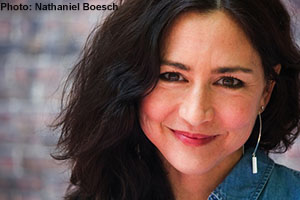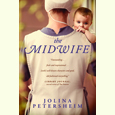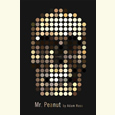The Hunting Season
In her debut novel for adults, bestselling YA novelist Diane Les Becquets pits two very different women against the wilderness, and the past
For Amy Raye Latour—the hunter whose disappearance kicks off Diane Les Becquets’s debut adult novel, Breaking Wild—the natural world holds a dangerous power. It’s much larger than herself, but she is drawn to it, time and again, from somewhere deep inside: “Silence hovered over her like a tarpaulin. The wilderness wasn’t asleep. She knew it had awoken with her first stirring, was waiting for her next move, watching her.” Within the frame of a thrilling adventure set in a deadly Colorado landscape, this novel respects the fact that life poses every size and shape of danger, and that sometimes the most predatory menace of all is one we carry from our pasts.
 On one side of this narrative is Amy Raye, a skilled elk hunter who goes missing under volatile winter conditions. On the other side is Pru, a park ranger whose determination to find answers defines the novel’s thriller spirit. Told in alternating points of view, Breaking Wild unfolds in smart switchbacks of mystery and revelation. Les Becquets steeps Amy Raye’s disappearance and the subsequent search efforts in abundant details of the unforgiving natural world, as well as the many tools human beings have devised to survive it. The book’s plot lives in these fine details—Amy Raye’s hunting gear and field skills become the clues that her pursuers must try to decipher.
On one side of this narrative is Amy Raye, a skilled elk hunter who goes missing under volatile winter conditions. On the other side is Pru, a park ranger whose determination to find answers defines the novel’s thriller spirit. Told in alternating points of view, Breaking Wild unfolds in smart switchbacks of mystery and revelation. Les Becquets steeps Amy Raye’s disappearance and the subsequent search efforts in abundant details of the unforgiving natural world, as well as the many tools human beings have devised to survive it. The book’s plot lives in these fine details—Amy Raye’s hunting gear and field skills become the clues that her pursuers must try to decipher.
However, the question of Amy Raye’s fate—not only her physical survival, but also the progression of her state of mind—propels more than the park rangers’ elaborate rescue mission. It becomes psychological fuel for Les Becquets’s explorations of survival, wildness, and compassion. Both Amy Raye and Pru have suffered griefs they carry heavily. Though they follow different paths of coping, both women have constructed their lives around their wounds, lives that may need to be broken open before they can heal.
Within the world of this novel, wilderness landscapes become the testing ground for personal struggles. Pru describes her gravitation toward the West: “When I took my grief to Colorado, I found the space I needed. I found the wind and the sky and the sun and the rocks and the high desert pinyon and sage to be the most effective balm of all. It was there that my grief became quiet and allowed me to hear the whispers of something much greater than myself, and I couldn’t get enough of it.” Despite their differences, Pru and Amy Raye both connect to the land in meaningful ways that sometimes elude them in other aspects of their lives.
In Amy Raye and Pru, Les Becquets offers nuanced portraits of two mothers, and a lesser writer might be tempted to pit Pru and Amy Raye against each other in a good mommy / bad mommy stand-off. Les Becquets forges a more honest path, allowing for differences in both their own temperaments and the roles children have played in their lives. Breaking Wild’s mature vision of motherhood is complex and varied in ways still all too rare in literature.
Les Becquets writes with a smart sense of how to manage the high stakes within these women’s inner lives, propelling them through fully dramatized adventure. In Breaking Wild, she has shaped a satisfying tale that captures something rare and precious about the darker, wilder forces that compel us.

Emily Choate holds an M.F.A. from Sarah Lawrence College. Her fiction is forthcoming from The Florida Review, Tupelo Quarterly, and The Double Dealer, and her nonfiction has appeared in Late Night Library, Yemassee, and elsewhere. She lives in Nashville, where she’s working on a novel.


